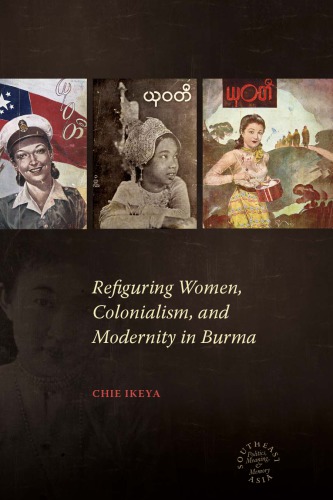Product desciption
Refiguring Women Colonialism And Modernity In Burma Chie Ikeya by Chie Ikeya instant download after payment.
Refiguring Women, Colonialism, and Modernity in Burma presents the first study of one of the most prevalent and critical topics of public discourse in colonial Burma: the woman of the khit kala—"the woman of the times"—who burst onto the covers and pages of novels, newspapers, and advertisements in the 1920s. Educated and politicized, earner and consumer, "Burmese" and "Westernized," she embodied the possibilities and challenges of the modern era, as well as the hopes and fears it evoked. In Refiguring Women, Chie Ikeya interrogates what these shifting and competing images of the feminine reveal about the experience of modernity in colonial Burma. She marshals a wide range of hitherto unexamined Burmese language sources to analyze both the discursive figurations of the woman of the khit kala and the choices and actions of actual women who—whether pursuing higher education, becoming political, or adopting new clothes and hairstyles—unsettled existing norms and contributed to making the woman of the khit kala the privileged idiom for debating colonialism, modernization, and nationalism.
The first book-length social history of Burma to utilize gender as a category of sustained analysis, Refiguring Women challenges the reigning nationalist and anticolonial historical narratives of a conceptually and institutionally monolithic colonial modernity that made inevitable the rise of ethnonationalism and xenophobia in Burma. The study demonstrates the irreducible heterogeneity of the colonial encounter and draws attention to the conjoined development of cosmopolitanism and nationalism. Ikeya illuminates the important roles that Burmese men and women played as cultural brokers and agents of modernity. She shows how their complex engagements with social reform, feminism, anticolonialism, media, and consumerism rearticulated the boundaries of belonging and foreignness in religious, racial, and ethnic terms.
Refiguring Women adds significantly to examinations of gender and race relations, modernization, and nationalism in colonized regions. It will be of interest to a broad audience—not least those working in the fields of Southeast Asian studies, colonial and postcolonial studies, cultural studies, and women’s and gender studies.


